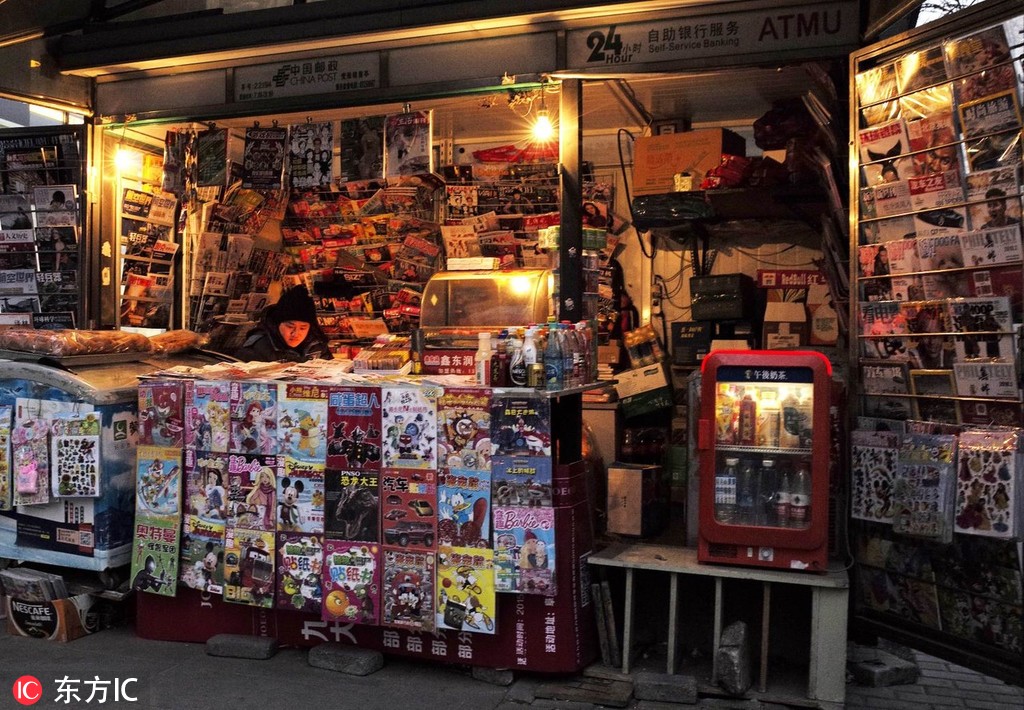Newsstands face battle amid changing times


"It is not easy to build a network of newsstands in a city. They are the closest cultural facilities to ordinary people," Luo said. "They have a reason to exist."
Luo suggested that newsstand owners could try to sell innovative cultural products such as paper cuts and needlework to make up for the losses from selling newspapers.
However, all items sold at newsstands need to be approved by the authorities.
Ding Xiaozhe, 43, an accountant, said of the disappearance of newsstands near his home in Dongcheng district: "It's a natural choice. Things that no longer fit with the times will be abandoned or fade away, which is reasonable."
Ding loves to read and was a loyal buyer of the magazines National Geographic and Chinese National Geography at newsstands.
"Every time I moved apartments, I had to carry several heavy boxes of my prized magazines," he said.
"I love good memories, but times change. We can read so much information on cellphones, and order digital magazines online. There's really no need to keep that many newsstands. Generally speaking, it's a waste of social resources to keep something that's old-fashioned."
Despite differing opinions about newsstands, the Beijing municipal government has decided to find a way to keep streets clean while allowing some of the stands to remain with upgraded facilities.
In 2014, the central government outlined the capital's core functions as the country's political, cultural, international communications, and scientific and technological innovation center.


















